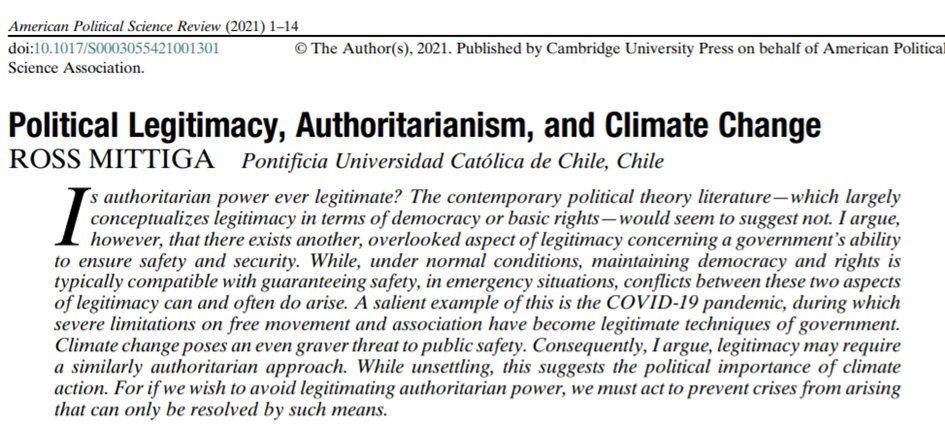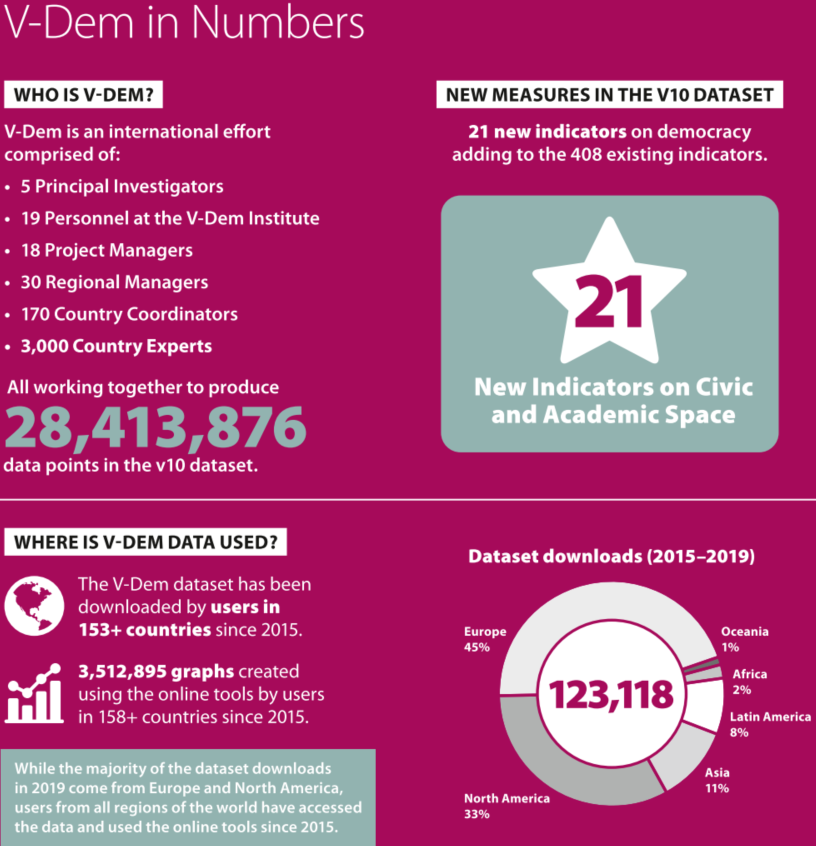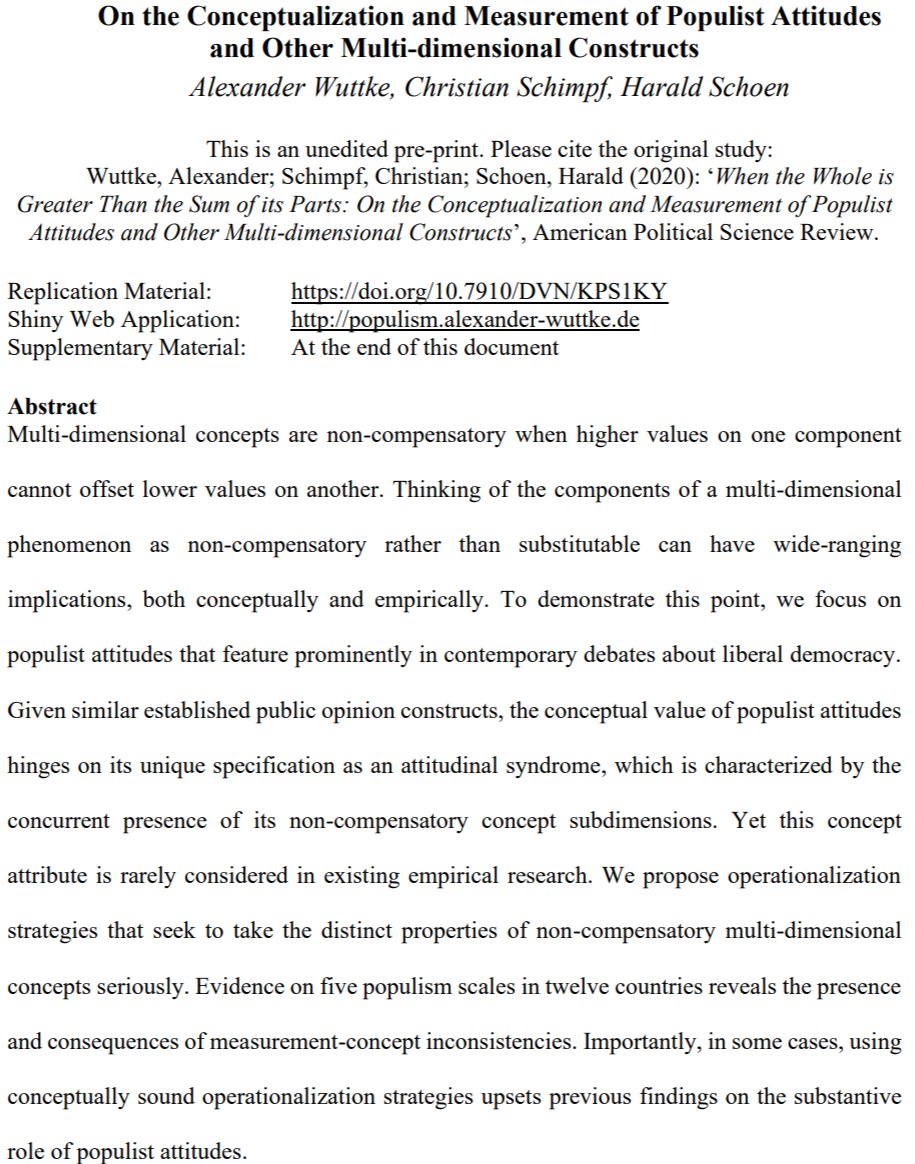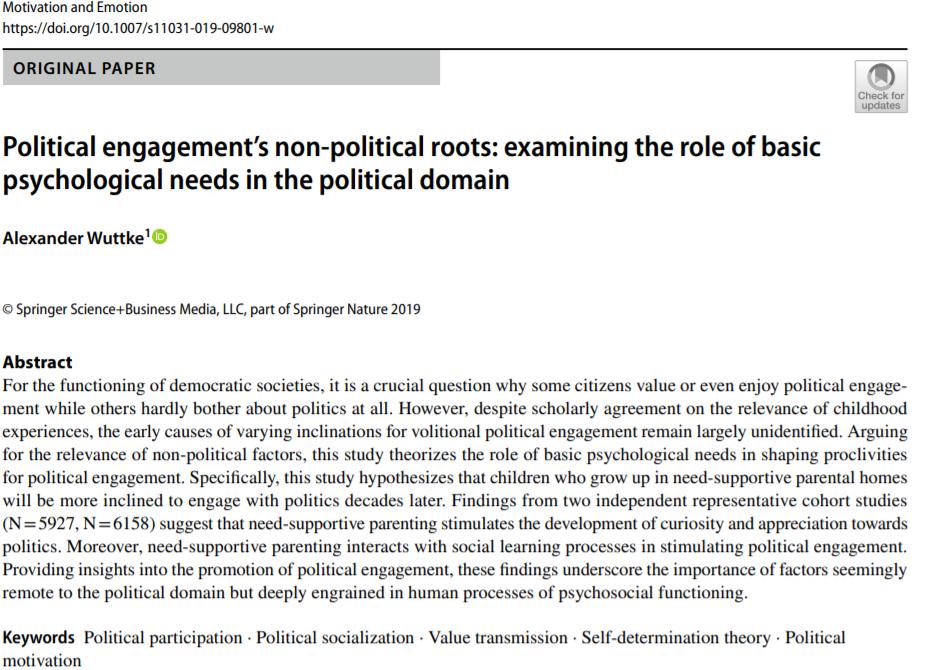
Digitalization & Pol Behavior @LMU_Muenchen | Democracy and Populist Attitudes | Open Science | 🚵♂️ | https://t.co/ZAmBK6e9hm
2 subscribers
How to get URL link on X (Twitter) App


 Why this matters:
Why this matters: 


https://twitter.com/jayvanbavel/status/1504957511606099968Pre-print not yet ready, unfortunately.





 A longer thread to explain why I disagree with the study’s conclusion and arguments.
A longer thread to explain why I disagree with the study’s conclusion and arguments. 
 It is a curious aspect of today's populism that its ideological core considers society as a homogenous entity but at the same time populist movements are particularly successful in uniting segments of the population that are very different from each other.
It is a curious aspect of today's populism that its ideological core considers society as a homogenous entity but at the same time populist movements are particularly successful in uniting segments of the population that are very different from each other.

 die Vielfalt und Gegensätzlichkeit an Grundüberzeugungen, die es auch Wissenschaft gibt, produktiv zu nutzen.
die Vielfalt und Gegensätzlichkeit an Grundüberzeugungen, die es auch Wissenschaft gibt, produktiv zu nutzen.
 This project takes up a study by Revers / Traunmüller based on a survey among students at a German university.
This project takes up a study by Revers / Traunmüller based on a survey among students at a German university.
 The need-based theory of political motivation in a nutshell:
The need-based theory of political motivation in a nutshell:

https://twitter.com/JoeySaraceno/status/1317215137648975872After Hansen&Treul reported evidence for a substantive finding in a JOP article, Saraceno reproduced the analysis and found inconsistent evidence for different model specifications.



 You will write your syntax and specify where two or more analytical choices are reasonable.
You will write your syntax and specify where two or more analytical choices are reasonable.




 The robustness value (@analisereal,@chadhazlett) applies to multivar. regressions: It is the minimum strength of association that unobserved confounding would need to have, both with the treatment and with the outcome, to change the research conclusions.
The robustness value (@analisereal,@chadhazlett) applies to multivar. regressions: It is the minimum strength of association that unobserved confounding would need to have, both with the treatment and with the outcome, to change the research conclusions.https://twitter.com/Kunkakom/status/1220270880355487746


https://twitter.com/JayUlfelder/status/1226195274772688906One line of disagreement is whether to distinguish countries by the *degree* of democratic quality.

 Our (H. Schoen+@ChristianSchim) argument refers to a specific but common type of multi-dimensional concepts which are sometimes called ‘non-compensatory’. Multi-dimensional concepts are non-compensatory when higher values on one component cannot offset lower values on another.
Our (H. Schoen+@ChristianSchim) argument refers to a specific but common type of multi-dimensional concepts which are sometimes called ‘non-compensatory’. Multi-dimensional concepts are non-compensatory when higher values on one component cannot offset lower values on another.

 Maybe you are one of those people who like talking and reading about politics. However, many other citizens couldn't care less about what's currently going on in D.C., Brussels, Berlin.
Maybe you are one of those people who like talking and reading about politics. However, many other citizens couldn't care less about what's currently going on in D.C., Brussels, Berlin.